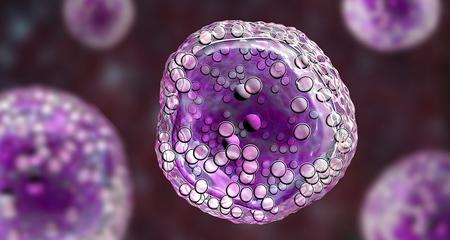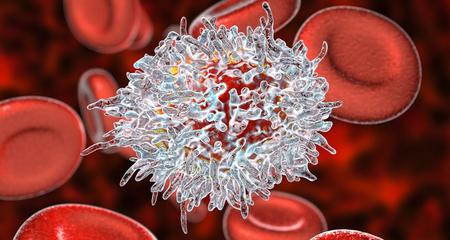Myelodysplastic syndromes (MDS) are a group of diseases in which the bone marrow produces stem cells that do not mature into fully functioning blood cells. This leads to low blood counts in one or more types of blood cell. Depending on the types of cells affected (white cells, red cells, platelets), the disease can lead to problems like infections, anemia and easy bruising or bleeding.
About 13,000 people in the U.S. are diagnosed with MDS every year. The majority of new patients are age 70 or older. A small number of cases are caused by exposure to radiation or certain chemicals, but in most cases the cause is unknown. There are several subtypes of MDS. In some patients, MDS cells take over the bone marrow and the disease evolves into acute myeloid leukemia.
MDS Treatment
Treatment of MDS depends on the stage of the disease and the health of the patient. Disease stage is determined by three factors — the percentage of immature cells in the blood, the number of cell types affected and any chromosomal abnormalities in the cancer cell.
- Patients with low-risk MDS may receive supportive care only. This can include blood transfusions to reduce the effects of low blood counts and hormone therapy to stimulate the bone marrow to develop red blood cells.
- Low-risk MDS may also be treated with low-dose chemotherapy on an outpatient basis. Chemotherapy agents stimulate bone marrow cells to mature.
- Various drugs called hypomethylating agents can help eradicate MDS cells for low- and high-risk disease.
- MDS cells with a specific chromosomal abnormality called 5q- syndrome are treated with lenalidomide, a drug that promotes the production of normal blood cells. More than two-thirds of patients no longer need transfusions.
- A variant known as hypoplastic MDS can be treated with drugs that suppress the immune system.
- Stem cell transplant can cure MDS. Transplant eligibility depends on the age and overall health of the patient and the availability of a suitable donor.
MDS Clinical Trials
Clinical trials give many patients access to innovative drugs and treatment approaches. Search our list of clinical trials for MDS studies available at Froedtert & the Medical College of Wisconsin.
Virtual Visits Are Available
Safe and convenient virtual visits by video let you get the care you need via a mobile device, tablet or computer wherever you are. We’ll gather your medical records for you and get our experts’ input so we can offer treatment options without an in-person visit. To schedule a virtual visit, call 1-866-680-0505.
More to Explore





